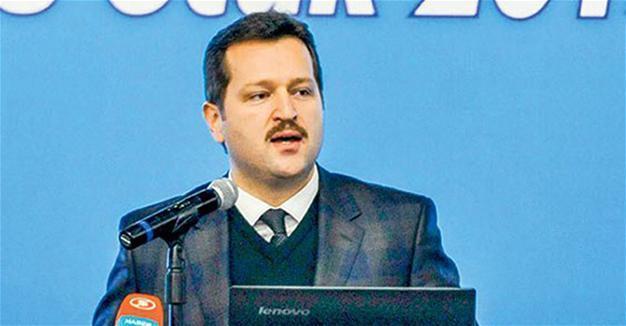Court orders arrest of son-in-law of former Deputy PM Bülent Arınç in anti-Gülen probe
Mesut Hasan Benli - ANKARA
 An Ankara court on June 5 ordered the arrest of the son-in-law of former Deputy Prime Minister Bülent Arınç after police detained him as a part of the ongoing investigation into the Fethullahist Terror Organization (FETÖ), accused of being behind the failed July 2016 coup attempt.
An Ankara court on June 5 ordered the arrest of the son-in-law of former Deputy Prime Minister Bülent Arınç after police detained him as a part of the ongoing investigation into the Fethullahist Terror Organization (FETÖ), accused of being behind the failed July 2016 coup attempt.Ekrem Yeter was detained at his residence and later referred to the prosecutor’s office to testify.
However, he was arrested on charges of "being a member of terror organization."
Arınç had earlier told daily Hürriyet that he believed Yeter had no connection with the organization.
“There is a [judicial] process ongoing. Hopefully, we will get information about him soon. We believe in our son-in-law in every aspect and we also believe he does not have any relationship [with FETÖ],” he said.
Yeter was among thousands of people either suspended or dismissed from their duties as a part of decree laws issued under the state of emergency declared in the wake of the failed coup attempt.
He had been working as an associate professor in the cardiology department of the Yıldırım Beyazıt University’s Medicine Faculty but was dismissed from his post in line with a decree law issued on Sept. 2, 2016.
Following the attemted coup, Yeter shared an image of himself with his wife on his social media account during public anti-coup rallies across Turkey dubbed “democracy meetings.”
Earlier, the son-in-law of Istanbul Mayor Kadir Topbaş, Ömer Faruk Kavurmacı, was arrested as a part of an operation against the Turkish Confederation of Businessmen and Industrialists (TUSKON), which was affiliated with FETÖ, before he was released by the Istanbul Fifth Criminal Court of Peace on May 4. He was released pending trial on the grounds that prison conditions were having a negative effect on his health, after he was diagnosed with epilepsy in 2005.
The court had stated in its court ruling that the continuation of Kavurmacı’s imprisonment could cause his health to deteriorate.
















